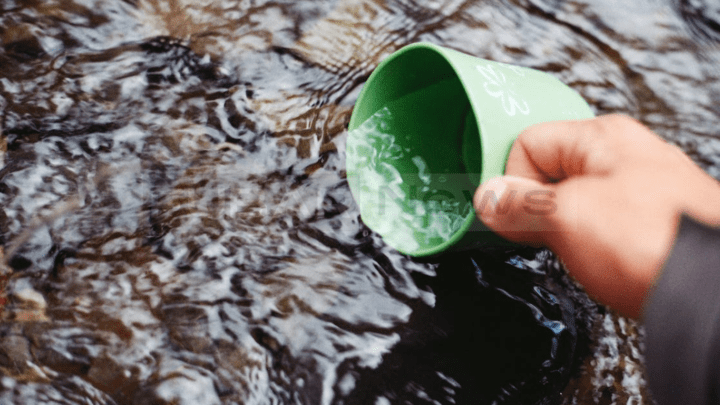In a world where access to clean water is essential for life, contaminated water poses a serious threat to public health. Today, many people turn on their tap and are not certain about the quality of the water that flows out. It’s a disconcerting thought, isn’t it?
Unfortunately, in various parts of the world, water contamination is a reality that many individuals and communities face daily. From industrial pollutants to aging infrastructure, the sources of contamination are diverse and can lead to severe health issues.
However, you can play a pivotal role in protecting your community from this threat. In this blog, we’ll explore effective tips that can make a substantial difference.
Utilize Water Filtration Systems
Ensure clean water for your community by utilizing filtration systems. According to the 2023 WQA Consumer Opinion Study, 45% of households now have a water filtration system. This marks a notable increase from the 40% reported in 2021. This surge underscores the growing awareness of the importance of clean water and the effectiveness of filtration systems.
You can actively contribute to community health by installing these systems in your own home. You can install reliable filters at home, ensuring that every drop you consume is free from harmful impurities. These systems actively work to remove various contaminants, such as sediments, chlorine, and even some bacteria, providing a straightforward defense against waterborne threats.
Investing in a quality filtration system is a proactive measure to enhance the safety of your community’s water supply. You don’t need an elaborate setup – there are user-friendly options available that fit seamlessly into your household. By choosing an effective filtration system, you take control of your water quality, contributing to the overall health and well-being of everyone around you.
Your commitment to utilizing water filtration systems becomes a community-centric initiative. Consider advocating for the installation of filtration systems in shared spaces like community centers or schools.
Implement Regular Water Quality Checks
Safeguard community health by actively implementing regular water quality checks. Regular assessments ensure that potential contaminants are promptly identified and addressed, maintaining the safety of your water supply.
Regular monitoring is essential to detect issues early on, avoiding prolonged exposure to harmful substances. These checks provide crucial data about the cleanliness and safety of your water, enabling timely interventions when necessary.
In the past, several instances have highlighted the catastrophic consequences of neglecting regular monitoring. One such case is Camp Lejeune, where oversight and authority negligence exposed millions of residents to adverse effects from contaminants. According to TorHoerman Law, the water supplies at the camp were tainted with PFAS and other toxic chemicals, resulting in an epidemic of chronic diseases.
The victims later sought legal avenues to alleviate the harsh suffering resulting from exposure to toxic contaminants. With the assistance of lawyers, the affected individuals filed lawsuits to obtain Camp Lejeune settlement amounts. These amounts aim to compensate victims for medical costs, lost employment opportunities, emotional losses, etc.
Spread Awareness on Water Contamination
Raise awareness about water contamination to safeguard community health. The Environmental Working Group’s survey reveals that more than half of respondents expressed concerns about the safety of their tap water. Shockingly, 40% stated that they couldn’t consume it directly from the tap, indicating a significant issue that demands attention.
You can help address this alarming situation by spreading awareness. Share the findings of the survey with your community, emphasizing the potential risks associated with contaminated water. Actively engage in conversations to ensure that everyone is well-informed about the quality of their drinking water.
Empower others with knowledge of the sources and consequences of water contamination. Encourage open discussions about the importance of clean water and its direct impact on community health. By being a catalyst for awareness, you contribute to positive changes in water consumption habits within your community.
Encourage Responsible Water Usage Habits
Promote community health by encouraging responsible water usage habits. Begin by addressing leaks promptly, preventing unnecessary wastage, and reducing the strain on local resources. Active engagement in conservation efforts empowers you to contribute directly to the well-being of your community.
Take control of your water usage by installing water-efficient fixtures and appliances. Simple changes, such as using low-flow faucets and efficient toilets, can significantly reduce water consumption. By adopting these measures, you actively participate in the collective responsibility of preserving water quality and availability for the entire community.
Educate your community about the impact of irresponsible usage on both individual households and the overall community. Share practical tips on water conservation, emphasizing the cumulative effect of small actions.
Push for Stricter Environmental Policies
Advocate for community health by pushing for stricter environmental policies. A study in Environmental Research Letters revealed that approximately 10% of community water systems in the contiguous United States reported health-based violations. The finding indicates the urgent need for more rigorous regulations to ensure the safety of the systems and sources.
You can be a driver for change by actively supporting and advocating for stricter environmental policies. Engage with local authorities, community leaders, and environmental organizations to raise awareness about the prevalence of health-based violations. By voicing your concerns and pushing for policy enhancements, you contribute to creating a safer and healthier environment for everyone.
Be informed about current environmental policies and stay updated on proposed changes. Actively participate in public forums, attend town hall meetings, and collaborate with like-minded individuals to amplify your advocacy for stricter regulations.
Explore Sustainable Water Treatment Solutions
Embrace community health by exploring sustainable water treatment solutions. Investigate advanced technologies that efficiently remove contaminants, ensuring a reliable and eco-friendly approach to water purification. Active exploration of sustainable options empowers communities to address this threat.
Consider decentralized water treatment systems as viable alternatives to traditional centralized approaches. These systems, often utilizing innovative filtration methods, can be tailored to the specific needs of smaller communities, providing localized solutions to water contamination challenges. By adopting sustainable treatment technologies, communities contribute to long-term environmental health.
Collaborate with local authorities, environmental experts, and community members to identify and implement sustainable water treatment solutions. Establishing partnerships fosters a collective effort to address water quality concerns and promotes the adoption of eco-conscious practices.
In conclusion, safeguarding your community from the rising menace of contaminated water is a shared responsibility. By implementing these practical tips, you actively contribute to a healthier future. Don’t forget that small actions can lead to significant changes.


